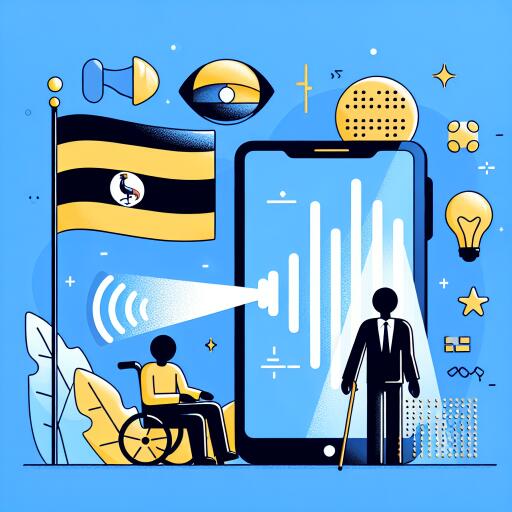Luganda Text-to-Speech: Breaking Barriers and Promoting Accessibility for the Visually Impaired
In the vast landscape of global communication, dominated primarily by a handful of major languages, a groundbreaking advancement is making waves for speakers of Luganda, a language spoken by over 20 million people. This innovative step forward comes in the form of the Luganda Neural Text-to-Speech (LNTS) system, a remarkable technology designed to enhance accessibility, particularly for those with visual impairments.
James Mugalu, an esteemed architect, underscores the quintessential value of embracing one’s native tongue. With the advent of the LNTS system, individuals like Mugalu find a renewed opportunity to immerse themselves in culturally rich content, such as the Bible, in their native Luganda. This technological leap not only preserves the linguistic authenticity but also honors the cultural nuances embedded within this beautiful language.
At the heart of this innovation is Ronald Kizito, a diligent researcher affiliated with the College of Engineering, Design, Art, and Technology (CEDAT) at Makerere University. Kizito, along with his dedicated team, embarked on a comprehensive study of Luganda’s linguistic intricacies to birth a system capable of seamlessly converting text into speech that resonates deeply with Luganda speakers.
The LNTS system is ingeniously designed to assist those who understand Luganda but encounter challenges with reading – be it due to visual impairments, illiteracy, or physical limitations. This versatile system boasts both offline functionality for basic devices and a more sophisticated online platform, ensuring it meets the diverse needs of its users.
In the realm of Text-to-Speech (TTS) technologies, English, French, and Chinese have traditionally reigned supreme. However, the introduction of the LNTS system signifies a groundbreaking milestone for Luganda speakers. This initiative has garnered support through funding from the government’s Research and Innovations Fund, attesting to its significance and the potential it holds for transforming the community and beyond.
Dr. Abubaker Matovu Wasswa, who leads the Department of Electrical and Computer Engineering at Makerere University, lauds the LNTS system for its potential in mitigating the obstacles posed by poor reading habits. By providing a seamless and accessible avenue for engaging with written material, this technology promises to revolutionize the way content is consumed.
As the LNTS project advances, it stands as a beacon of hope and a testament to the power of technology in dismantling barriers and fostering inclusivity. While initially tailored for Luganda speakers, its triumph sets the stage for similar endeavors across other widely spoken African languages. This heralds a future where linguistic diversity is not only celebrated but also where access to information becomes a universal reality, bridging gaps and connecting communities in ways previously unimagined.
Through initiatives like the LNTS system, we are reminded of the transformative power of technology to transcend linguistic barriers, highlighting the importance of inclusivity and accessibility in today’s globalized society. As we move forward, it’s crucial to continue supporting such innovations, ensuring that no individual is left behind due to language constraints or physical disabilities. The Luganda Text-to-Speech system not only serves the Luganda-speaking community but also lights the path for similar technologies that can bring about enormous societal benefits, making the world a more accessible place for everyone.










